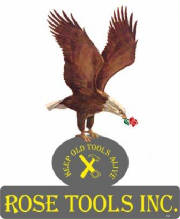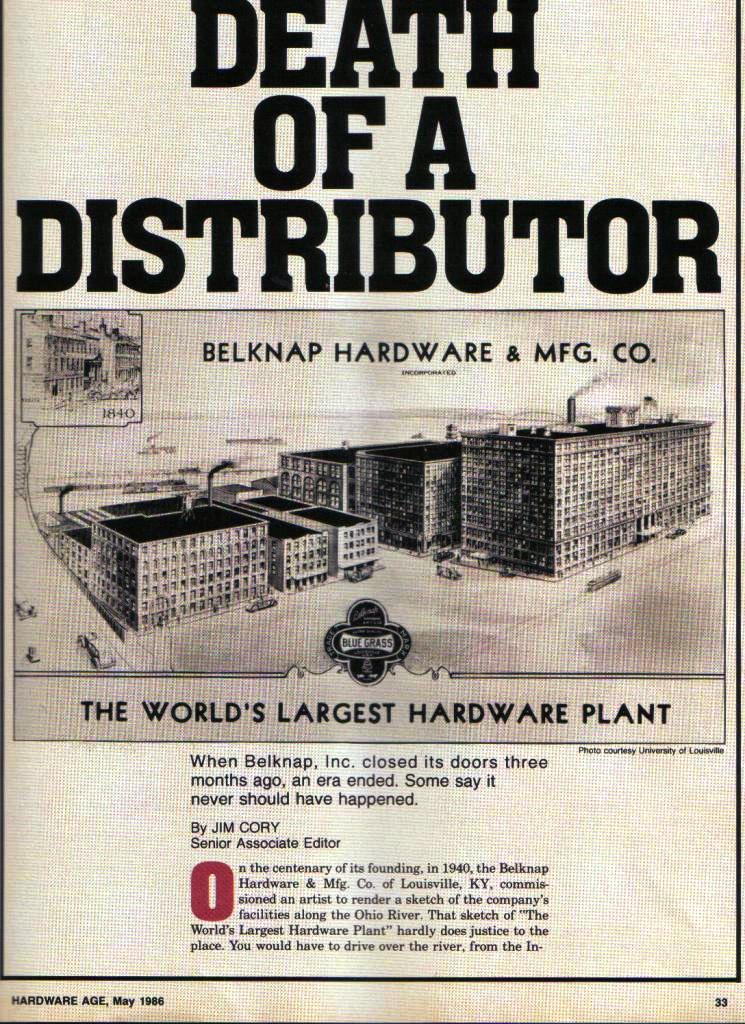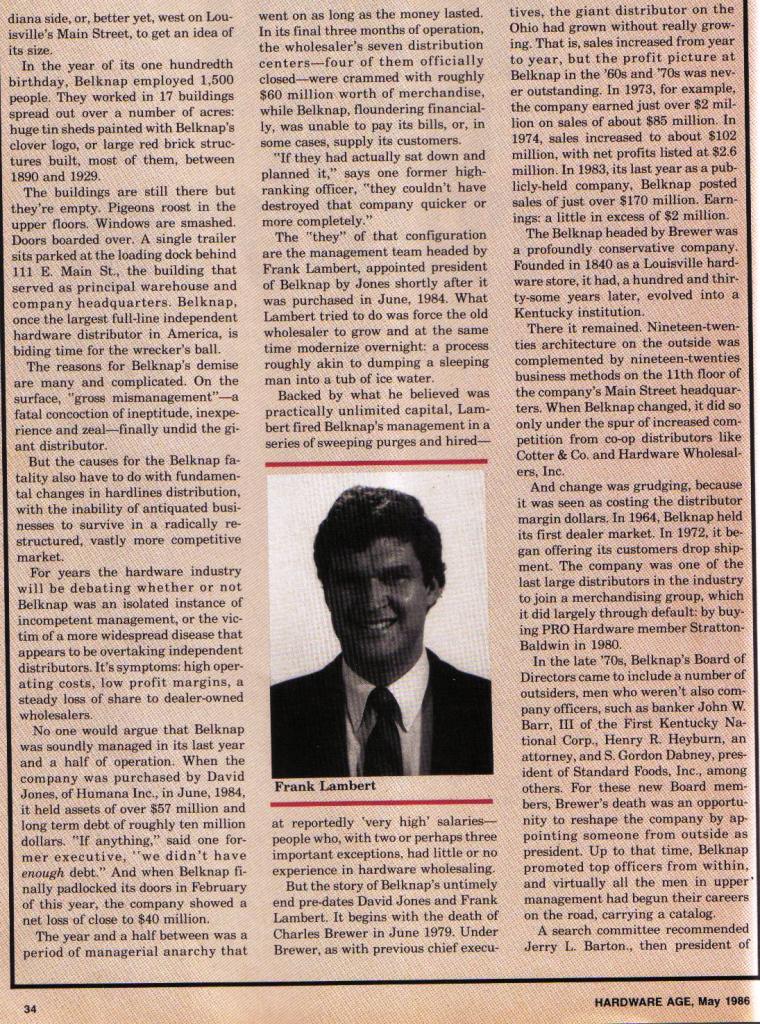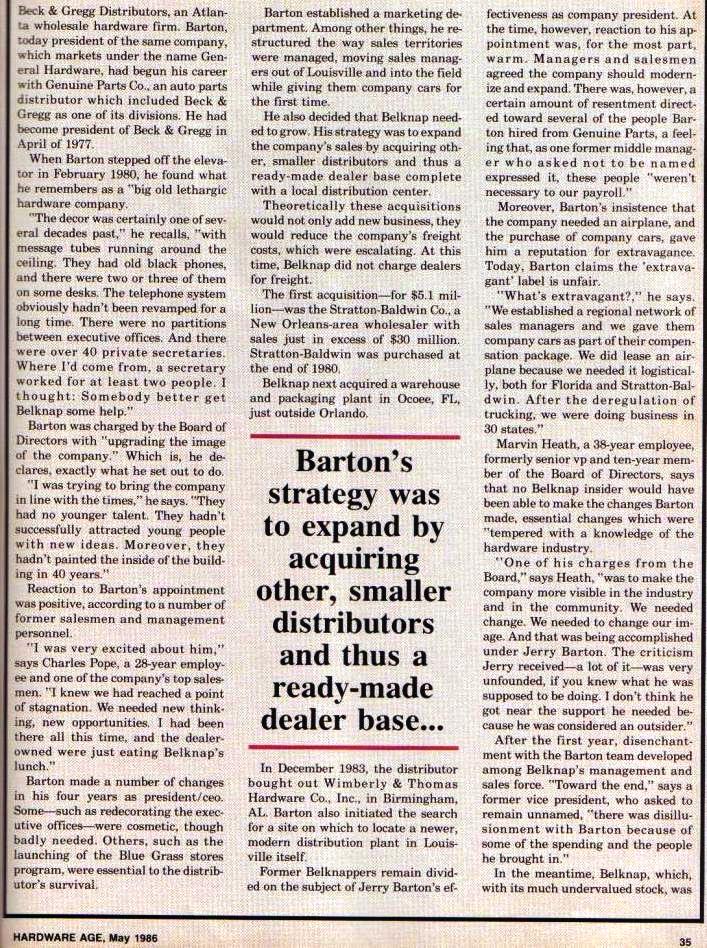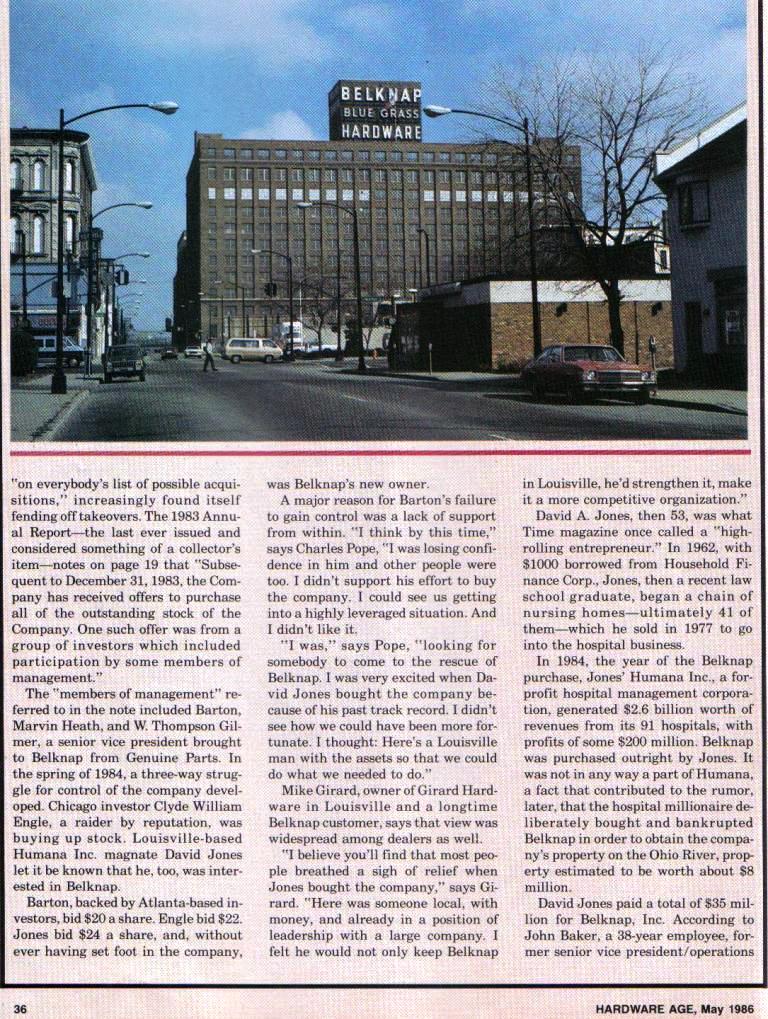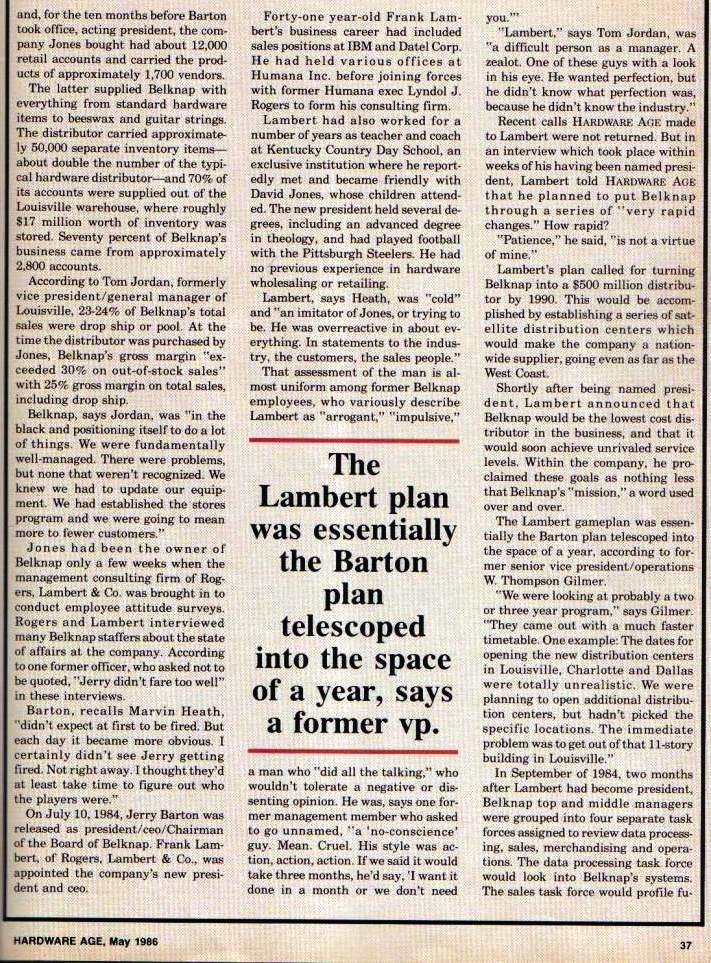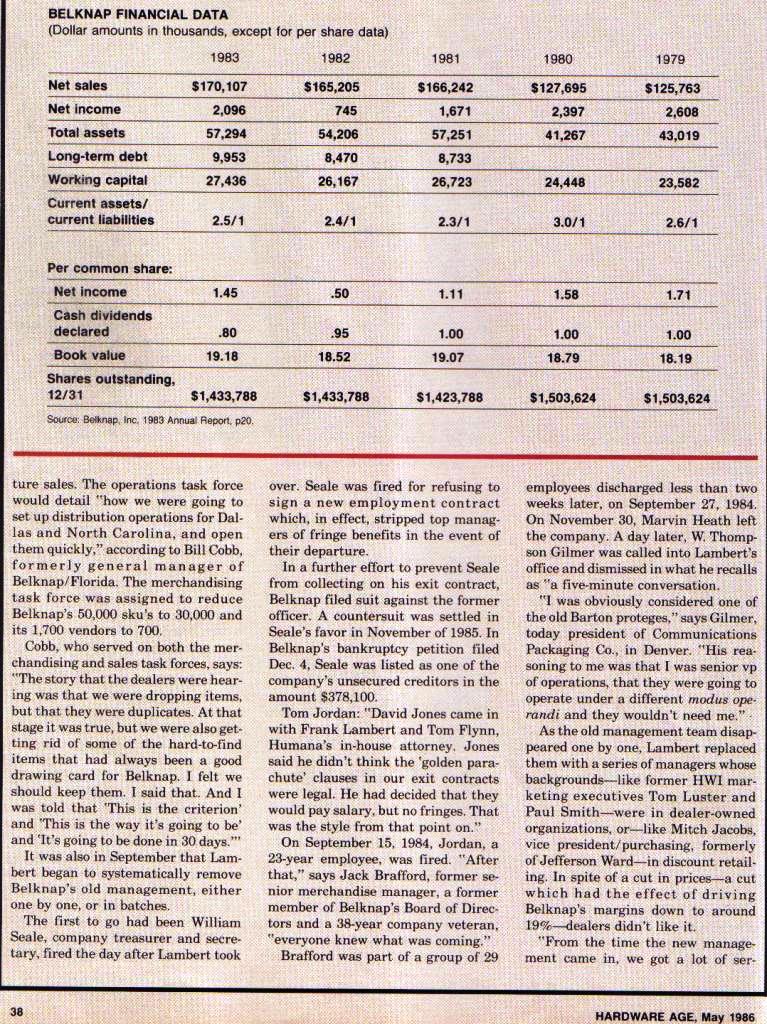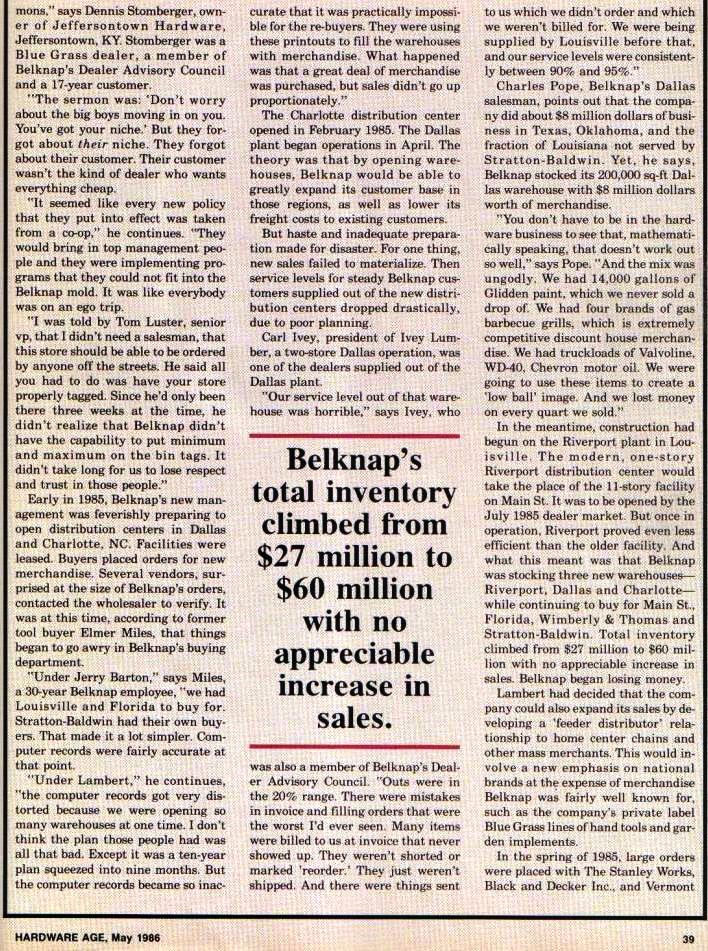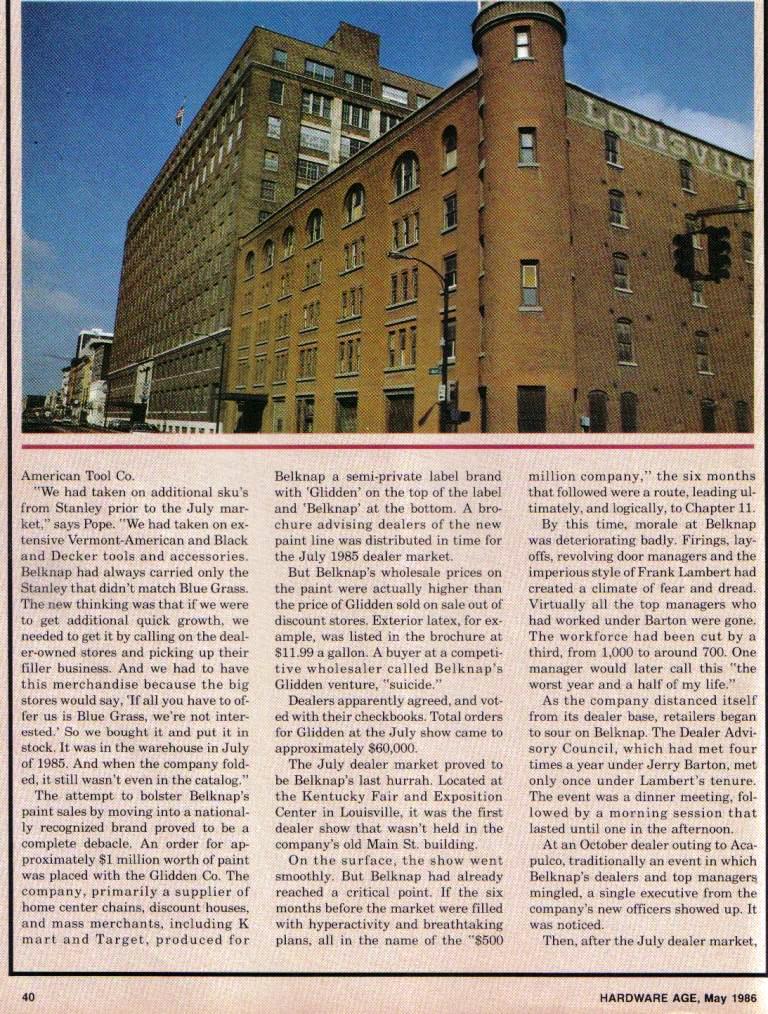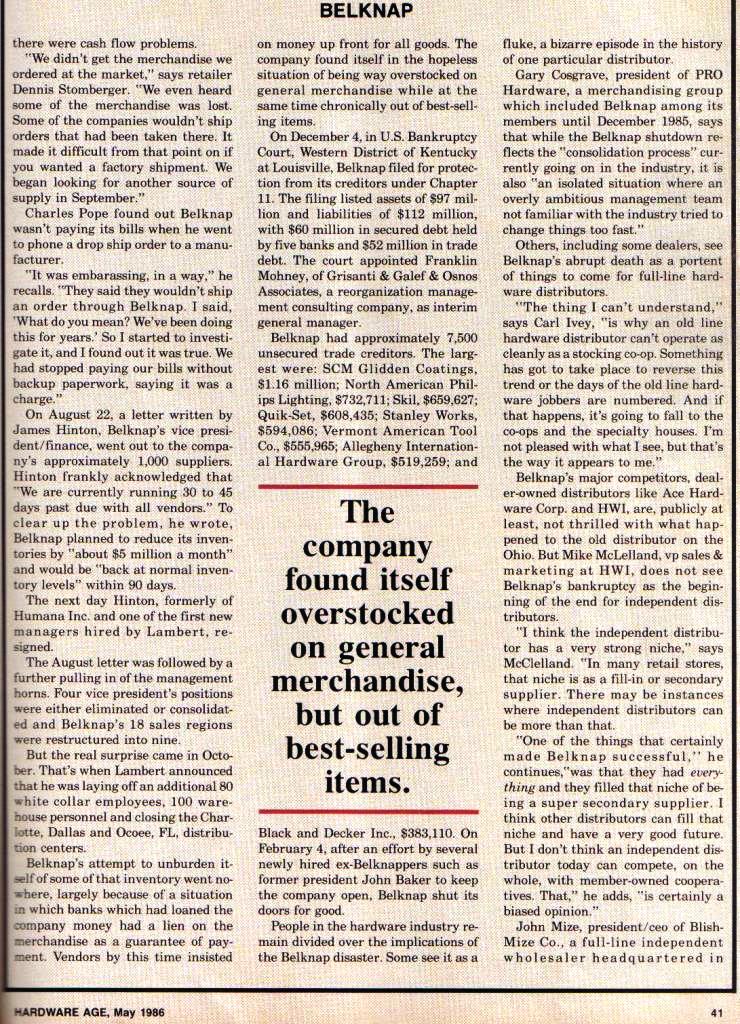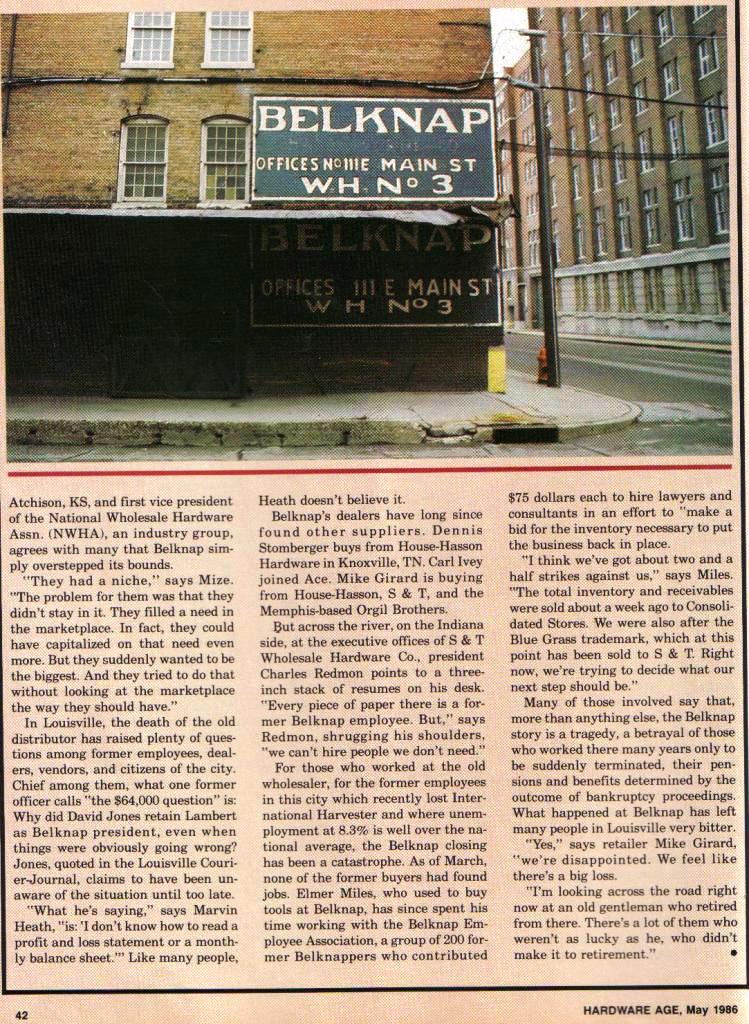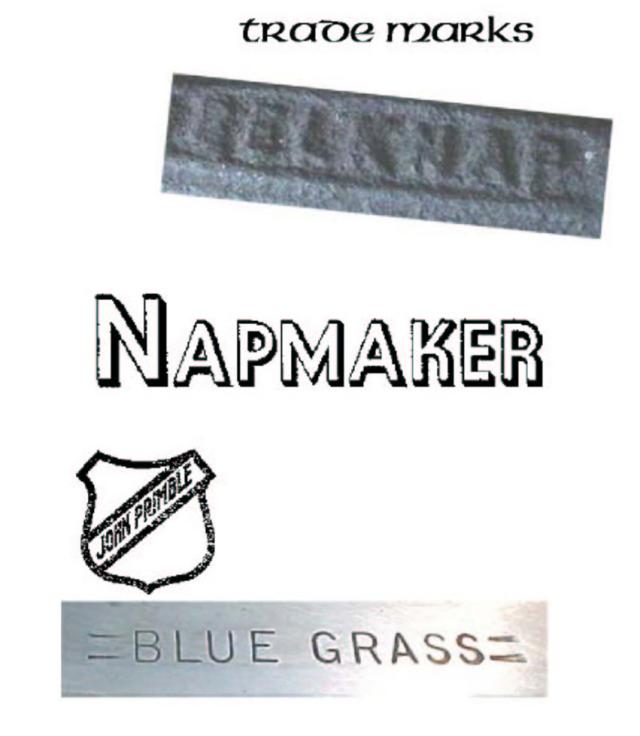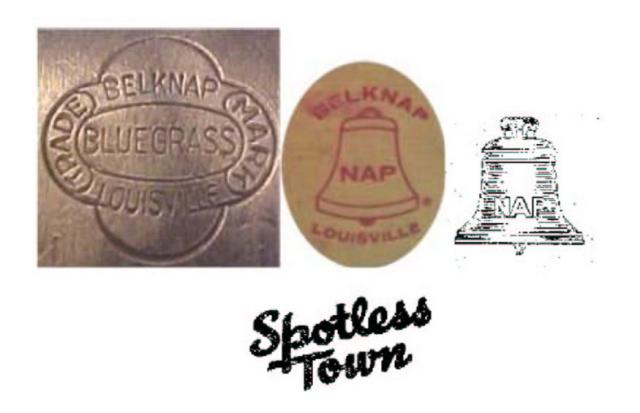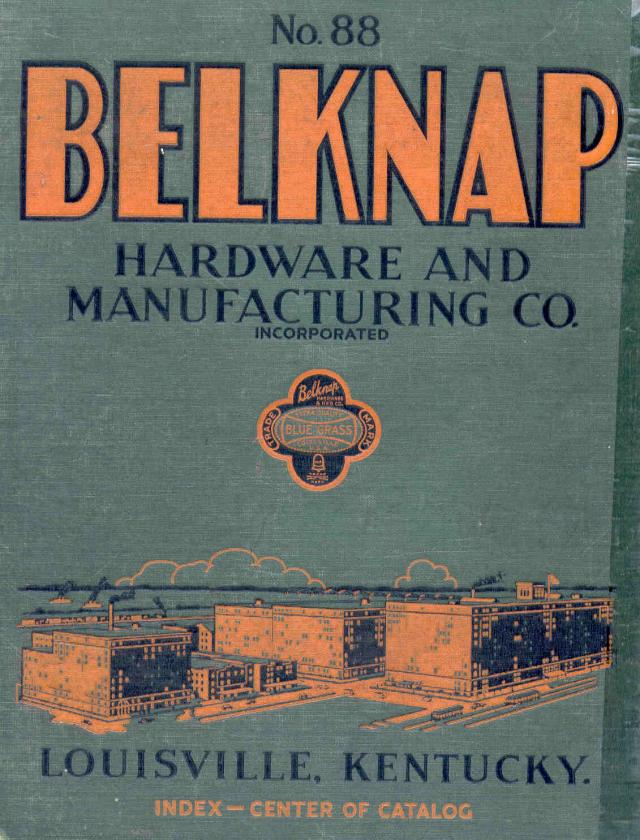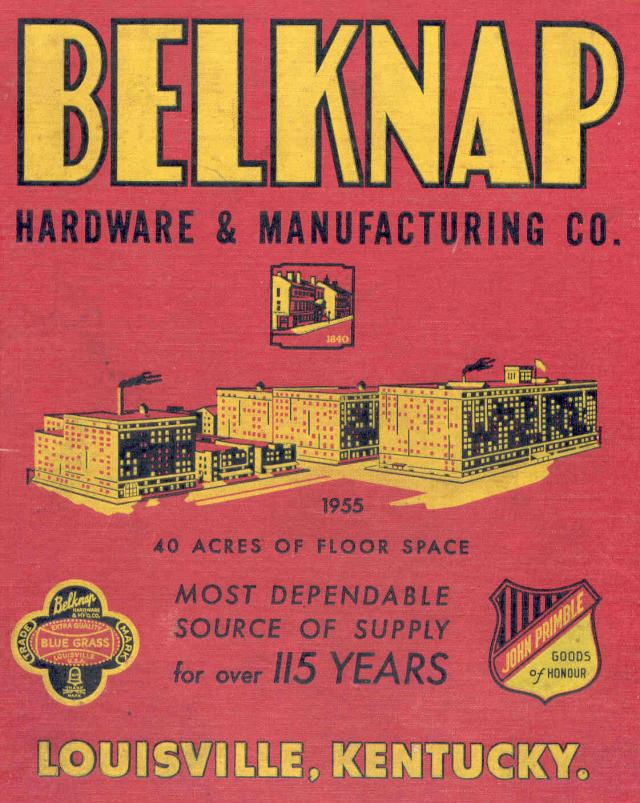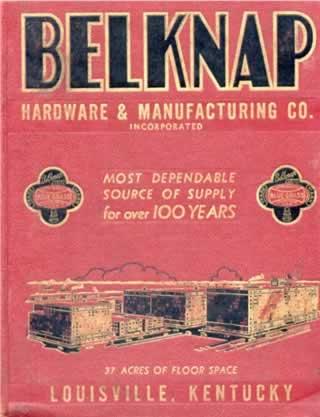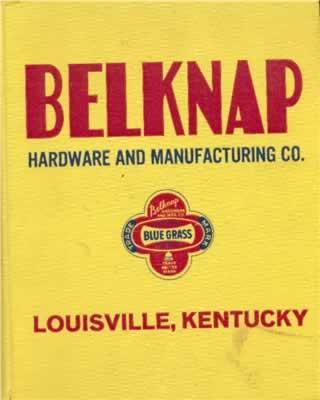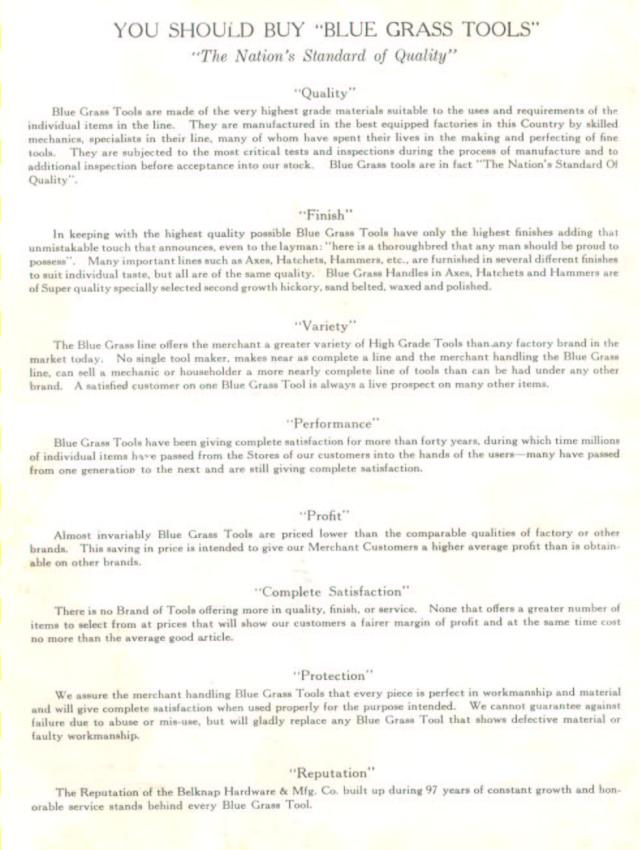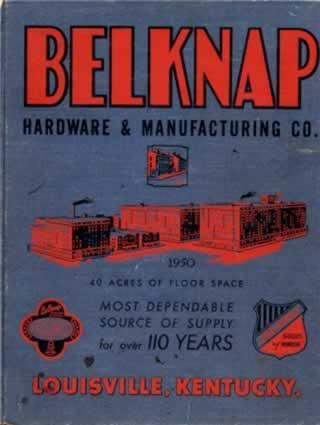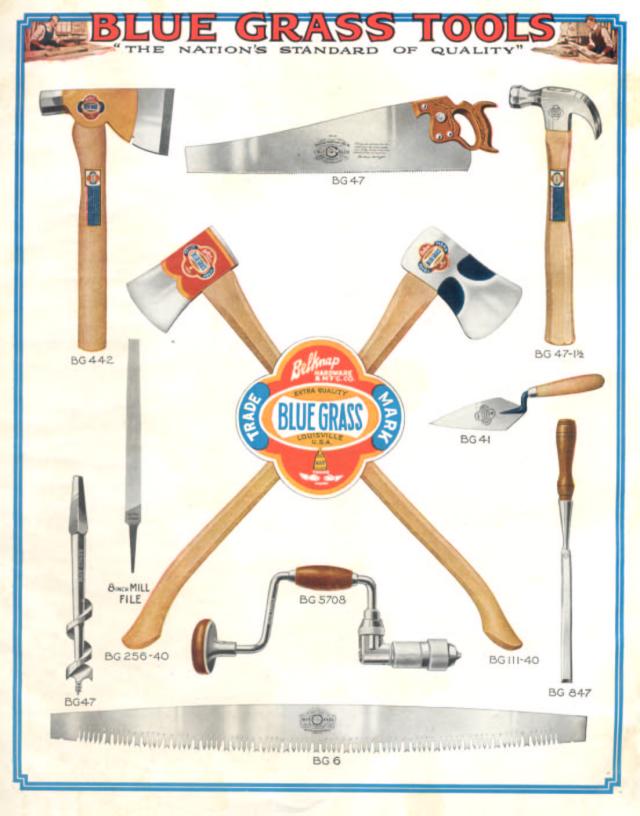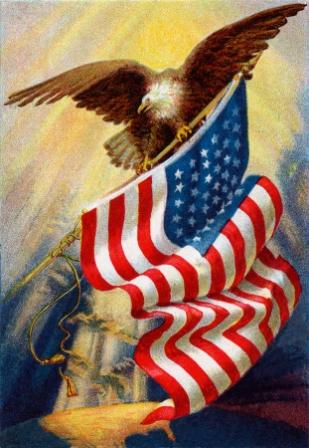|
|
HomeAmerican Axe & ToolBelknap HardwareBridgeport HardwareBrown & SharpeDisston SawsGene's Tool MuseumGoodell PrattHibbard, Spencer, Bartlett & Co.Keen KutterLufkinMillers FallsPeck, Stow & WilcoxSargent & CompanySears CraftsmanStanleyStarrettThe James Swan CompanyThe l.& I. J. White CompanyMiscellaneous Antique Tool Catalog DownloadsBella Vista Woodcarving ClubLinksTools For Sale & Contact InformationWhat is my antique tool worth?Business assignment writing
|
William Burke Belknap founded this historic hardware company in 1840, along the
banks of the The first building was a three-story brick on the corner of Third and W.B. Belknap was an astute businessman. He was able to quickly discern the needs of his clients and community, focusing on what goods and services would best serve to make his business grow. He began his venture at a time when rivers were the transportation freeways and horsepower was real: mules and carts, horses and wagons. He built on this, providing quality, affordable tools, with brand names such as 'Belknap, King of the Bluegrass' and Thoroughbred, reflecting Kentucky's own pride in its unique topography and its love of fine horseflesh. Some of Belknap trademarks are John Primble (1931), Cyclone (1952), Crusader (1935), Belmont, Old Kentucky Home, Pride of Kentucky and Pine Knot. Nap (1909) Blue Ribbon (1949). Spotless Town (1951) Homemaker (1958) Slumber Deep (1959) Speedmore (1962-83) Cap’N Nap (1964) Knap (1982) Mr. Belknap's savvy business acumen
was quite an asset. And he would need every asset he could muster, seeing as he favored the Being another of that same breed of venture capitalists as E.C. Simmons and A. F. Shapleigh, he was the right man, in the right place, at the right time, with the right goods and services. He rode on the dual waves of an expanding frontier and the industrial revolution. His business philosophy was that whether his clients needed builder's hardware, house wares, mechanics or farming tools, or even pocket knives, Belknap would fill that order with quality merchandise, that came to be known as "goods of honor". Like these other men, he started small. His first catalog was a 3" x 5 ½", 16 page pamphlet. Belknap's inventory in 1880 was a mere 100 items. In 1940, the company's catalog had grown into a 3000-page tome, containing over 75,000 items. Still going strong! This was quite and accomplishment seeing that the immediately preceding years had seen the disappearance of such giants of the industry as Simmons Hardware, bankrupt in 1939. The 1957 catalog provided 90,000 items. When it closed its doors in 1986, under bankruptcy, Belknap's inventory had reached more than 117,000 items, mostly Blue Grass tools. The Company was W.B. Belknap from 1840-1860; W.B. Belknap and Co. from 1860-1880; W.B. Belknap and Co. Incorporated from 1880-1907 and Belknap Hardware and Manufacturing Company Inc. since 1907 Belknap while obviously a hardware and manufacturing leader is also remembered
for its pocket knives. By the 1800's, pocket knives were some of its primary lines of merchandise. The company carried Russell
I*XL and LF & C, then introduced its own brands; Blue Grass, Pine Knot, Jas. W. Price and most noteworthy, the John Primble.
This trademark was used as early as 1890, and probably before. It is also found on cutlery. Pine Knot knives were most likely
made for Belknap by Robeson. The Primble knives (not those stamped A business consortium in The Blue Grass trademark pocket knife was made for Belknap until the 1950's (with the Barlow pattern continuing on for a while). This trademark was purchased by S & T Hardware which issues a limited edition collector knife about every two years. Belknap, like other major historic hardware houses, faced many challenges undergoing many changes over the course of more than a century of operation. However, it is said to have retained a "family" approach with its employees and their dependents, providing picnics, parties and doing all of its promotions from within the company. Belknaps' final demise was in 1986. Below is an eleven page article that a friend of my found for me from an issue of Hardware Age magazine
dated May 1986. The article is by Jim Cory the associate editor at the time and also a viewpoint by Terrence V. Gallagher
Editor in Chief of Hardware Age. It is very informative and there is some interesting reading on how Belknap Hardware met
its death in 1986. Click on any picture to read the articles.
It is to my understanding that the Belknap warehouse is no longer standing and was imploded in 1993 .
Douglas Ware was an eye witness to this implosion and wrote this about the event:
I attended and videotaped the implosion in 1993. The implosion was used for promotional purposes in the premiere of the movie "Demolition Man" starring Sylvester Stallone, Wesley Snipes, and Sandra Bullock. MTV sponsored a contest to rub elbows with the stars here in Louisville at a VIP area facing the warehouse, which had MTV and movie logos painted on the side of the building. The finale being the implosion of the warehouse, which had drums of gasoline placed in the upper floors for "Hollywood Effect". please go to this site below for more information on the implosionhttp://www.louisville.edu/~pdhutc01/Engl303/implosion/implosion.htm#_Toc47788240
Below are a few of the trademarks of Belknap
Below is some interesting information
I found through public records: Organization Number 0191257 Company Name BELKNAP HARDWARE AND MANUFACTURING COMPANY Status Inactive Profit/NonProfit Profit Standing Good State KY Company Type KCO Country Date Agent Resigned File Date 6/1/1880 Incorp. Date 6/1/1880 Authority Date Exp. Date Last Annual Report 7/1/1974 Agent Name CHARLES P. BREWER Agent Addr 111 E. MAIN ST. Prin.Office Addr 111 E. MAIN ST. LOUISVILLE, KY LOUISVILLE, KY Authorized Shares 0002500000 Preferred No Par 0000000000 Preferred Par 0000000000 Common No Par 0000000000 Common Par 0000000000 Initial Directors / Incorporators WILLIAM R. BELKNAP INCORPORATOR MORRIS B. BELKNAP INCORPORATOR C. J. F. ALLEN INCORPORATOR WILLIAM HEYBURN INCORPORATOR JOHN W. PRICE INCORPORATOR WILLIAM R. BELKNAP INCORPORATOR MORRIS B. BELKNAP INCORPORATOR C. J. F. ALLEN INCORPORATOR JOHN W. PRICE INCORPORATOR WILLIAM HEYBURN INCORPORATOR Organization Number 0191257 Company Name BELKNAP, INC. Status Inactive Profit/NonProfit Profit Standing Bad State KY Company Type KCO Country Date Agent Resigned File Date 6/1/1880 Incorp. Date 6/1/1880 Authority Date Exp. Date Last Annual Report 5/7/1993
|
